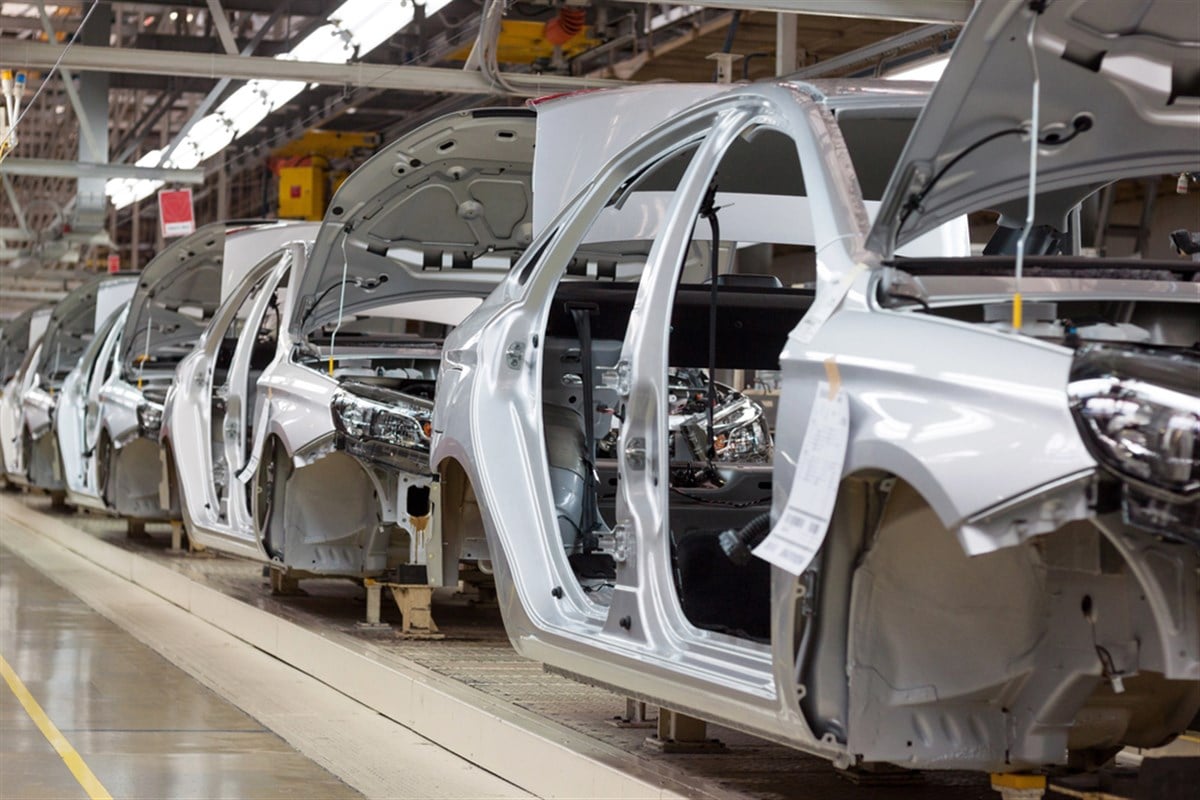
Even with President Trump reaching a breakthrough trade deal with China, many companies haven’t been able to avoid the sting of tariffs. One of the industries that has the most focus is automakers. This is because tariffs specifically affect physical goods rather than services.
For an industry selling expensive physical goods, tariffs can lead to an extensive increase in costs. This can put significant pressure on margins or hurt demand if a company decides to pass these costs on to the consumer. This is exactly what is happening to two of the automakers discussed below. However, tariffs do not impact all car companies in the same way. Two other automakers continue to thrive amid tariffs.
There is some evidence that European and U.S. tariffs may be backfiring on the lawmakers who imposed them. All return data is as of the May 9 close.
The Losers: Japanese and U.S. Giants Strap on Their Seatbelts for Tariff Impact
Two car companies that are already seeing significant negative impacts from tariffs are Toyota Motor (NYSE: TM) and General Motors (NYSE: GM).
Toyota released its fiscal Q4 2025 earnings on May 8. Along with the release, the company detailed the level of damage it expected tariffs to have on its business in the coming months.
Toyota believes that tariffs will reduce the company’s operating income by $1.3 billion in April and May alone.
At first, this may not sound like a massive impact, considering that Toyota generated nearly $85 billion in adjusted revenue last quarter.
However, margins in the automotive industry tend to be low due to the vast costs of making cars and intense competition. Even with almost $85 billion in revenue, Toyota made only around $7.6 billion in operating profit.
Thus, $1.2 billion would be a significant profit hit in just two months.
Overall, the company expects operating profit to fall by nearly 21% in fiscal 2026, largely due to the impact of U.S. tariffs.
In a nod to the idea of tariff backfire, a company expecting to take an even larger haircut is the American automaker General Motors.
GM cites a tariff impact of between $4 billion and $5 billion in 2025.
This caused the company to lower the midpoint of its adjusted operating profit guidance by nearly $3.5 billion.
That essentially equals wiping its total Q1 2025 adjusted operating profit off the books.
Overall, $3.5 billion is equal to 24% of the adjusted operating profit the company generated over the last 12 months.
GM stock is down nearly 11% in 2025, while Toyota is down almost 4%, reflecting the difficult market in which these companies are operating.
The Winners: BYD and Ferrari Shares Hit the Accelerator
On the other side of the equation, two foreign car companies are performing incredibly well in 2025. One of those companies is the Chinese EV maker BYD (OTCMKTS: BYDDY). China is one of Tesla’s (NASDAQ: TSLA) largest markets, and sales are dropping.
Meanwhile, BYD saw its sales increase by 21% in April. BYD doesn’t sell cars in America, so it doesn’t have to worry about tariffs on that front.
However, China is one of Tesla’s largest markets. Due to tariffs, Tesla has stopped selling some U.S.-made cars to China. This has helped give BYD a leg up in its home market.
Something similar is happening in Europe. In Germany, BYD sales rose over 385% in the first four months of the year, compared to Tesla’s sales drop of 60%. BYD is shifting its European focus to plug-in hybrid vehicles (PHEVs) rather than EVs.
This is because it has to pay significantly lower tariffs on PHEVs than EVs in the European Union. BYD has achieved an astonishingly good return in 2025 of approximately 46%.
Another carmaker doing well amid tariffs is Ferrari (NYSE: RACE). The company is forecasting only a 50 basis point hit to its adjusted operating margin.
Especially for a company like Ferrari, that is almost insignificant.
Due to its costly vehicles, Ferrari enjoys one of the most significant operating margins of any car company. Last quarter, the figure came in at over 30%. Ferrari's stock has done very well this year, up around 16%.
Overall, the calculation of tariffs is far from simple.
As evidenced above, what lawmakers think may play out when imposing these regulations can be far different from what actually happens. Investors should also take note of this.